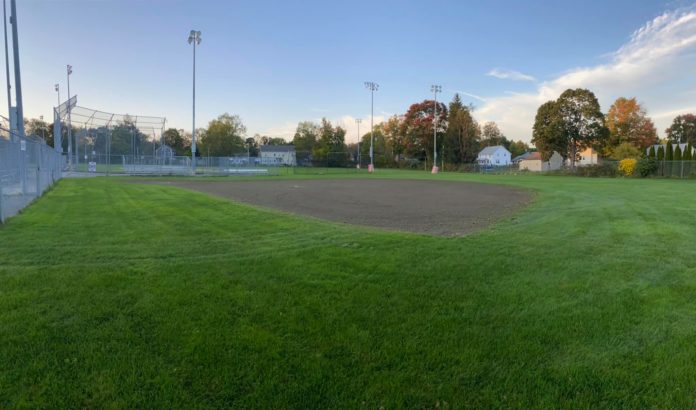BURRILLVILLE – From cancelled practices and delayed tournaments, to hours spent trying to ready the field with volunteer labor, coaches and league organizers turned out in September to tell members of the Town Council about poor conditions at a softball field at Hauser Recreation area.
Now, efforts are underway to replace that field, with $65,000 approved to hire a contractor to put down a new surface.
“I went out there the other day and you could almost make pottery out of this stuff,” said Public Works Director Jeff McCormick. “It’s not drying out.”
The Howard Avenue recreation area features three softball fields and one t-ball field – but it is the area known as south west infield #1 that has seen the most trouble – with constantly damp conditions, according to those who play there.
Groups that pay to use the facility include Burrillville Girls’ Softball, Burrillville Youth Football & Cheer, Burrillville Adult Softball League and more. DPW maintains the facility at a cost of $27,000 a year and collects around $6,000 in usage fees, according to McCormick.

McCormick said he planned to request funding to replace the surface as part of the town’s capital improvement budget, which is approved in June, but now hopes to get the project done much sooner.
“I’m trying to get ahead of the game, bid in April, and get out there as soon as it starts drying up in May,” McCormick told councilors at a meeting last week. “This year’s going to be mud-city until May, at least. I prefer to try and get this going because the people that were here aren’t going to see anything happening if we wait.”
McCormick noted that the town has made efforts to fix the surface in the past, including topping it with an infield mix purchased from New England Specialty Soils just a few years ago. But the mix either wasn’t the right consistency or was not applied correctly, leading to continually wet conditions.
He noted that DPW could do the upcoming field improvements in-house, but that he would prefer to hire professionals, and watch how they handle the project first. His staff, he noted, could still do some of the drainage work.
“I think it would be worth it to see how it is done correctly,” McCormick said, noting that the soils alone for the project cost $28,000.
“Let’s have the professional do it and then let’s really be good students,” Councilor Dennis Anderson agreed.
Councilors voted unanimously to allocate unassigned money left over in in the major capital fund to finance the project.








